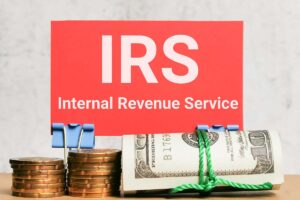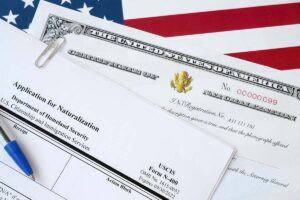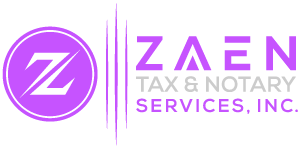
Secrets of Individual and Business Taxes That They Don’t Want You to Know!
I. Introduction
Understanding tax secrets is crucial for both individuals and businesses as it provides a means to optimize their financial situations and minimize tax liabilities. Tax systems can be complex and overwhelming, but by delving into the intricacies of tax planning, individuals and businesses can gain a competitive advantage. In this article, we will explore the secrets of individual and business taxes that can help you save money and maximize your profits.
II. Individual Tax Secrets
A. Common Deductions and Credits
- Maximizing deductions and credits is a key strategy to reduce your tax liability as an individual taxpayer.
- While many taxpayers are aware of popular deductions such as the mortgage interest deduction, there are lesser-known deductions that can save you even more money.
– Examples of these deductions include medical expenses, educational expenses, and state and local taxes. - Additionally, understanding the various tax credits available can further reduce your tax bill.
– Tax credits like the Child Tax Credit, Earned Income Tax Credit, and Lifetime Learning Credit can significantly lower your tax liability.
B. Strategies for Reducing Tax Liability
By utilizing tax-efficient investments, individuals can minimize their tax burden.
– Tax-efficient investments such as municipal bonds provide tax-free income, saving individuals from paying taxes on the interest earned.- Understanding tax brackets and optimizing income can also result in substantial tax savings.
– Individuals can strategically plan their income to stay within lower tax brackets, effectively reducing the percentage of income taxed at higher rates. Leveraging tax deductions for retirement contributions is another effective strategy.
– Contributions to retirement accounts such as 401(k) or Individual Retirement Accounts (IRAs) are deducted from your taxable income, lowering your overall tax liability.
C. Tax Loopholes and Legal Gray Areas
- While it is important to stay within the boundaries of tax law, there are some legal gray areas where individuals may exploit loopholes for maximum tax benefits.
– However, it is essential to be cautious when using these methods, as some may be controversial and carry potential risks.
-
It is crucial to maintain ethical integrity in tax planning practices and to seek professional advice to ensure compliance with tax laws.
D. Tips for Effective Tax Planning
- Effective tax planning requires careful consideration and foresight.
- Planning ahead and utilizing strategies such as tax-efficient investments, optimizing income, and leveraging deductions can contribute to a successful tax plan.
- Regularly revisiting your financial situation and consulting with tax professionals can help you stay up to date with changes in tax laws and identify new opportunities for tax savings.
III. Business Tax Secrets
A. Choosing the Right Business Structure
Understanding the different business structures and their tax implications is essential for maximizing tax benefits for your business.
Sole proprietorships, partnerships, corporations, and other structures each have their pros and cons.
– For instance, sole proprietorships offer simplicity and pass-through taxation, while corporations provide limited liability protection but are subject to double taxation.Choosing a business structure that aligns with your goals and provides the greatest tax advantages is crucial for optimizing your business’s financial situation.
B. Exploiting Tax Deductions and Credits
- Business owners often overlook common deductions that can significantly reduce their tax liability.
– These deductions include business-related expenses, travel expenses, advertising costs, and employee benefits. - Capitalizing on available tax credits is another important strategy.
– Researching and taking advantage of tax credits specific to your industry or business activities can result in substantial tax savings. - Different industries may have specific tax advantages, such as tax benefits for research and development expenditures, renewable energy investments, or exports.
C. Effective Tax Strategies for Small Businesses
Small businesses can implement specific tax strategies to optimize their tax situation.
Utilizing the Section 179 deduction allows businesses to deduct the full cost of qualifying equipment purchases in the year they are placed in service.
Home-based businesses can take advantage of tax benefits associated with their use of personal space for business purposes.
Understanding optimal depreciation methods for business assets is crucial to maximizing tax benefits over time.
D. International Tax Planning for Businesses
- Understanding global taxation and its impact on businesses is vital for those operating internationally.
- Strategies for minimizing taxes while operating abroad can include utilizing international tax treaties, employing transfer pricing strategies, and establishing tax-efficient overseas subsidiaries.
Compliance with tax laws is of utmost importance when optimizing international profits, as penalties for non-compliance can be severe.
Conclusion
To recap, understanding the secrets of individual and business taxes empowers individuals and businesses to make informed financial decisions and minimize tax liabilities. By maximizing deductions and credits, utilizing tax-efficient investments, exploring legal gray areas responsibly, and seeking professional advice, individuals and businesses can optimize their financial situations. It is crucial to stay informed about changes in tax laws and seek professional guidance to ensure compliance. By harnessing the power of tax secrets, you can take control of your financial future while navigating the complex world of taxes.
Engaging in tax evasion or fraudulent practices can result in severe penalties, including fines, criminal charges, and imprisonment. It is crucial to comply with tax laws to avoid the legal and financial consequences.
Tax secrets aim to optimize tax situations legally and responsibly. While they can aid in minimizing tax liabilities, they should never be used to avoid paying taxes altogether.
When selecting a tax planning professional, consider their qualifications, experience, and reputation. Seek recommendations from trusted sources and conduct thorough research before choosing a tax professional to ensure reliability.
Tax systems vary by country, and tax secrets may differ accordingly. It is important to consult tax professionals knowledgeable in the specific tax laws and regulations of your country.
While utilizing tax secrets does not inherently increase the risk of an audit, there is always a possibility of being chosen for an audit. By staying within the boundaries of tax laws and engaging in responsible tax planning, the risk can be minimized.
Note: This article is intended for informational purposes only and should not be considered as legal advice. Businesses should consult with legal professionals for specific advice related to their circumstances.
RECENT POSTS


Unveiling How Zaen Tax Saved Me from Overpaying Taxes — Shocking Revelation!

Why Seeking Professional Tax Consultation Could Be The Best Decision You’ve Ever Made!

Mistakes You Are Making By Not Using Our Notary Loan Signing Agent Service!

Why Our Notary Loan Signing Agent Service is the Best Solution for You!

Why Notary Services are the Secret Ingredient in Your Business

Why IRS Certified Acceptance Agents are Incredibly Important? The Answer Might Surprise You!

How Hiring a Certified Acceptance Agent Could Change Your Life with the IRS?

The Incredible IRS Pros They Don’t Want You to Know About – Certified Acceptance Agents!

Get Your ITIN Application Approved in No Time with Professional Help!

How to Unlock Tax Benefits You Never Knew You Were Entitled to With ITIN Application

Say Goodbye to Bad Credit Forever: Discover the Best Credit Repair Service!

Revealed: This is How You Can Improve Your Credit Score Overnight!

The Secrets to Easily Managing Immigration Forms Revealed by Notary Agent!

Frustrated with Immigration Forms? Not Anymore with this Notary Agent!

Ever Tried Fingerprinting Service by a Notary Agent? You Won’t Believe the Impact!

How a Notary Agent Takes Fingerprinting to the Next Level!

Ordained Minister or Notary Agent? Find Out Who Does What and Why You Need One!

The Unexpected Skills of a Notary Agent turned Ordained Minister

Can’t Wait to Get Your Passport Photos?? Zaen Tax Have you Sorted!!

Shocking facts about Employee Retention Credit service by a notary agent revealed

You won’t believe the incredible results this notary agent delivers with their ERC service!

This notary agent’s Employee Retention Credit service will blow your mind!

Are You Paying Too Much on Student Loans? This Notary Agent Can Help You Save!

Say Goodbye to Student Loan Debt Forever with the Revolutionary Notary Agent Method!

